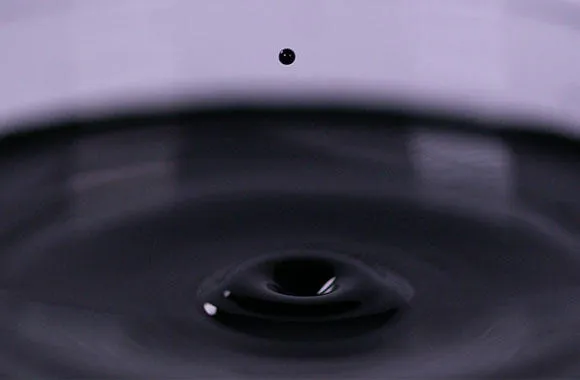The last few years have seen a dramatic shift in attitudes towards the environment and climate change. Today, these factors are held as a key priority in businesses worldwide, from SMEs to large multinational corporations.
Businesses want to meet consumer expectations surrounding sustainability, and are looking to reduce the environmental impact of their products, packaging, and production methods. This also includes the way that products are labelled, and, as such, the demand for printers using more environmentally friendly consumables, including MEK-free inks, is on the rise.
What is MEK?
MEK (methyl ethyl ketone) is a solvent used in traditional continuous inkjet inks. Its high evaporation rate means that MEK-based inks are very fast drying, however they are also associated with increased volatile organic compound (VOC) emissions. VOCs are gases emitted during printing that can affect indoor air quality, they can also have a negative impact on the environment by contributing to the formation of ground-level ozone.
While there is currently no globally unified regulation imposing restrictions on the use of MEK-based inks, many countries and regions worldwide have introduced local guidance and limitations around the use of MEK, which may necessitate paying additional taxes and charges or implementing additional monitoring processes.
It is expected that regulations restricting the use of MEK will continue to broaden in scope and reach. As such, many manufacturers are now seeking MEK-free solutions to reduce their environmental impact and prepare for future regulatory restrictions.
What are the benefits of MEK-free inks?
MEK-free inks typically emit fewer VOCs than traditionally used MEK-based consumables, and provide efficiency gains, by reducing make-up consumption. VOC emissions can be further reduced when using MEK-free inks in combination with latest generation coding equipment – such as Domino’s Ax-Series printers – with reduced drop size and more efficient ink usage.
Additional benefits of MEK-free inks can include improved usability and air quality on production lines – while MEK-based inks can often be associated with a strong unpleasant smell, alcohol-based MEK-free inks have very little odour, this also reduces the risk of sensory contamination to products and packaging.
With an increasing focus on sustainability, and worker health and wellbeing, it’s no wonder that MEK-free inks are in high demand. However, developing MEK-free inks that provide the high levels of adhesion, readability, and contrast that manufacturers have come to expect can be a challenge.
Luckily, Domino's expert Ink Development team have invested significant effort into overcoming this challenge, to provide MEK-free solutions for a range of applications.

Domino’s MEK-free solutions
At Domino, we are committed to continual research and development into new and improved ink formulations, that deliver great performance on production lines, are safe to use, and help our customers to achieve their sustainability goals. As such, our Ink Development team have developed a range of MEK-free solutions to reduce VOC emissions and consumables consumption, and improve air quality, while still generating clean, crisp codes that withstand the test of time.
The latest MEK-free solution from Domino is 1BK108, a black, MEK-free formulation developed specifically with food and pharma requirements in mind. 1BK108 is EuPIA compliant, and all components are listed on the Annex 10 of the Swiss Ordinance List, offering manufactures an MEK-free coding solution for printing on food packaging.
1BK108’s high-adhesion properties make it particularly suitable for low surface energy substrates including recyclable polyethylene (PE) and polypropylene (PP). These types of substates are growing in popularity due to their recyclability, however, have traditionally been quite challenging to code with MEK-free solutions. IBK108 delivers the exceptional print quality and excellent adhesion expected with typical MEK-based inks – the only thing missing is the MEK.
Manufacturers switching to IBK108 can reduce overall makeup usage by 35%, this can be further reduced to 50% when the printer is fitted with Domino’s Green Pack solvent recovery add-on, which allows reuse of condensed solvent that may otherwise have been lost (available for Ax350i and Ax550i printers).
Another MEK-free solution for difficult to code substrates, including PE and PP is 8BK167 – a black, very fast-drying ink with excellent adhesion properties, and high reliability even when printing at very fast speeds. 8BK167 is EuPIA GMP and Swiss Ordinance compliant, and suitable for use in a range of sectors including food, beverage, dairy, personal care, and pharmaceuticals.
Domino’s MEK-free range also includes 1BK104 a 100% ethanol-based, all-purpose fast-drying ink, for food and pharmaceuticals applications. 1BK104 is well suited to flexible food packaging, including snacks, confectionery, and dried foods, and has also been validated in Japan for printing on PET pouches in retort applications.
With Domino’s range of MEK-free inks, low-impact printing is now a more realistic option than ever before. To find out more, or to discuss the most appropriate solutions for your specific requirements, please get in touch.